第53章
[24] It is to be remarked, in passing, that this division of crimes into those dangerous and those not dangerous for society, which is well and instinctively made by juries is far from being unjust.The object of criminal laws is evidently to protect society against dangerous criminals and not to avenge it.On the other hand, the French code, and above all the minds of the French magistrates, are still deeply imbued with the spirit of vengeance characteristic of the old primitive law, and the term "vindicte" (prosecution, from the Latin vindicta, vengeance) is still in daily use.A proof of this tendency on the part of the magistrates is found in the refusal by many of them to apply Berenger's law, which allows of a condemned person not undergoing his sentence unless he repeats his crime.Yet no magistrate can be ignorant, for the fact is proved by statistics, that the application of a punishment inflicted for the first time infallibly leads to further crime on the part of the person punished.When judges set free a sentenced person it always seems to them that society has not been avenged.Rather than not avenge it they prefer to create a dangerous, confirmed criminal.
Juries, like all crowds, are profoundly impressed by prestige, and President des Glajeux very properly remarks that, very democratic as juries are in their composition, they are very aristocratic in their likes and dislikes: "Name, birth, great wealth, celebrity, the assistance of an illustrious counsel, everything in the nature of distinction or that lends brilliancy to the accused, stands him in extremely good stead."The chief concern of a good counsel should be to work upon the feelings of the jury, and, as with all crowds, to argue but little, or only to employ rudimentary modes of reasoning.An English barrister, famous for his successes in the assize courts, has well set forth the line of action to be followed:--"While pleading he would attentively observe the jury.The most favourable opportunity has been reached.By dint of insight and experience the counsel reads the effect of each phrase on the faces of the jurymen, and draws his conclusions in consequence.
His first step is to be sure which members of the jury are already favourable to his cause.It is short work to definitely gain their adhesion, and having done so he turns his attention to the members who seem, on the contrary, ill-disposed, and endeavours to discover why they are hostile to the accused.This is the delicate part of his task, for there may be an infinity of reasons for condemning a man, apart from the sentiment of justice."These few lines resume the entire mechanism of the art of oratory, and we see why the speech prepared in advance has so slight an effect, it being necessary to be able to modify the terms employed from moment to moment in accordance with the impression produced.